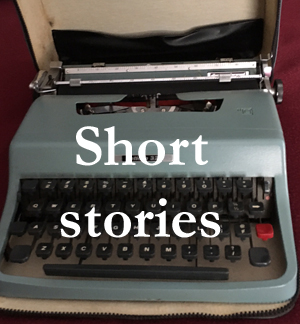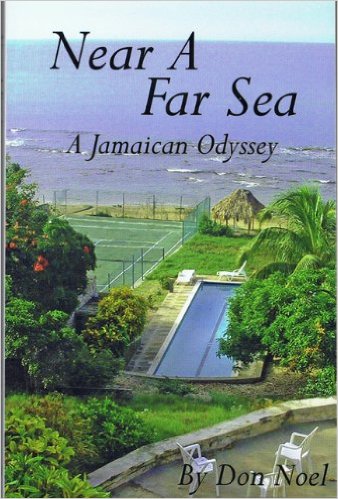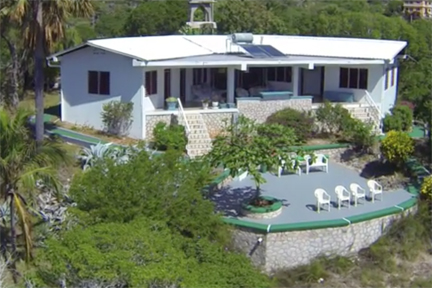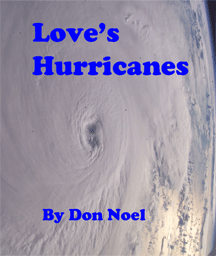Published in Cleaning Up Glitter on September 20, 2020
It was as perfect a June morning as the Connecticut shoreline offers, mild with a cloudless sky and the lightest of northwest breezes. 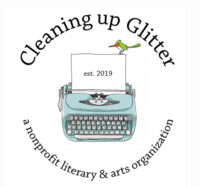 Spring lingered; the white azaleas in the planter boxes fairly shone. The funeral home was on Main Street, the former Boston Post Road. Most traffic nowadays was out on the turnpike, faintly audible; here the town was barely stirring. Across the street the hardware store man rolled out his sidewalk display of lawnmowers.
Spring lingered; the white azaleas in the planter boxes fairly shone. The funeral home was on Main Street, the former Boston Post Road. Most traffic nowadays was out on the turnpike, faintly audible; here the town was barely stirring. Across the street the hardware store man rolled out his sidewalk display of lawnmowers.
The family stood in the sunshine renewing acquaintances and re-learning children’s names, comparing notes on how long the drive had been, and how light the traffic. They had come mostly to support Mildred, the last survivor of her generation, getting early starts from New Jersey and Massachusetts and Rhode Island, bringing her grandchildren, most of whom had never met Uncle Charlie and were too young to comprehend death. A few grown nieces and nephews and cousins had also come.
It was more of a family reunion than a funeral. Charlie, a bachelor who had run an antique shop down the Post Road, had never been an easy man to get along with; he’d always seemed to enjoy an argument more than a conversation. He’d been known to refuse to sell an item to people who had somehow offended him as they browsed the shop; if they protested, he’d threaten to call the cops and charge them with trespass unless they got out.
When he’d become too frail to manage the store himself, there’d been no choice but to sell it; no one would have worked for him. In his final years he’d become a grumpy recluse who had refused any family visits – even from Mildred, his favorite sister — and nursed his growing physical afflictions like a grudge.
Just before ten they filed into the narrow chapel of the funeral home. Two rows of folding chairs were reserved for family against the side wall, between the benches and the flower-decked casket at the front of the room. Most of them stood, continuing conversations begun in the parking lot, not noticing that they made it awkward for others to get by.
One man finally eased around the relatives to kneel on the tufted cushion and cross himself beside the casket. It was closed, presumably because even a skilled mortician couldn’t cover up all the damage Uncle Charlie had done when he ended things, but there was a small photograph atop the casket, and the mourner addressed himself briefly to that before bowing his head in prayer.
Other townspeople began queueing up at the front of the main row of benches to pay their last respects. Grandma Mildred, noticing the attention being paid her late brother, broke away from the family and cut into line to kneel for a few moments at the casket while the rest of the family sat down.
When the last mourner who intended had said his goodbye, a minister materialized from behind the curtains to take his place at a lectern half-facing the family benches. He was a big man in maroon robes, with a short-cropped gray beard and a commanding deep voice that must have influenced his choice of vocations.
He at first ignored Uncle Charlie as thoroughly as most of the family had. He read from the Bible, addressing with confidence the subject of eternity and resurrection. One of the passages he chose referred to the moment when a man is called to his Maker, almost as though he didn’t know Charlie had done the calling.
But it turned out the minister had done his homework. Although Charlie hadn’t been a member of his congregation, or any church for that matter, he’d had a long conversation with Irwin, Charlie’s best friend in town – almost the only friend he’d let near him in the last years. Irwin had helped Charlie get the care he needed, found him the morning of his death, notified the relatives and arranged the funeral, yeoman service Grandma Mildred had gratefully accepted.
The minister recited Charlie’s career and his service to the town in his better times, and touched lightly on the curmudgeonly qualities of the recent past. That evoked a few tears among congregants who had sat inexpressively through the standard elements of the sermon but now remembered with unexpected nostalgia their own affronts. When the minister managed a little humor, they rewarded him with a ripple of chuckles.
Then he led them in the Lord’s Prayer; explained that interment would be a private affair for the family only; boomed out a final prayer; and the service was over.
The townspeople drifted away, and the family stood chatting uneasily, half-watching as the funeral director and his staff opened the casket to tuck in a few earthly mementos Irwin had found. Grandma Mildred went up to participate, adding a childhood photograph she’d brought; she later declared they’d done a better job of patching up than she’d expected. Then the men re-closed the casket, put it on a wheeled frame and rolled it out a side door to the hearse. The family went out into the June warmth to renew conversations as they got into cars and lined up.
The final resting-place — Uncle Charlie had chosen for himself, years ago — was several miles away. They followed the hearse up the Post Road and out onto the turnpike, then onto narrow roads through farmlands and salt marshes where red-winged blackbirds sang or screeched.
The little cemetery was a picturesque place, a hillside leading down to the edge of a cove dappled with paddling swans and ducks and a few sailboats at anchor. The hearse stopped at the top of the hill. The funeral director had them drive on down to park near the water and walk back up to the gravesite, a spot with a commanding view of the cove that they told each other couldn’t be a better place to spend eternity.
It was apparent that it would take time to get the casket out of the hearse and muscle it unceremoniously onto the mechanism that would lower it into the grave, so they wandered off for a few minutes to resume their enjoyment of the day, reading the historic markers and pointing out to the children the lifelike bronze ducks that seemed to be resting among the gravestones.
When the minister reappeared they walked back across the bright green grass and up the hill, clustering under the white-and-blue tent while he offered a few more Biblical passages and prayers. The casket was lowered. Grandma Mildred led the adults in taking a handful of earth from the pile to throw onto Uncle Charlie’s coffin.
The minister gave them one more prayer, and then they headed back to the cars while the cemetery men finished the job.
Irwin had arranged a luncheon back in town at one of the best restaurants. They lingered over the meal, reminiscing about childhoods and sharing their scattered lives. Mildred’s oldest son Adam stood and raised his glass, then paused, wondering if a toast to the departed was appropriate; after a moment he recalled the reason for their presence, and thanked Irwin for his friendship and his thoughtfulness in arranging the details of this day.
At last they clambered into their cars, said their goodbyes, and headed out to the turnpike and home, all glad that they had come to see Uncle Charlie off.
-End-

